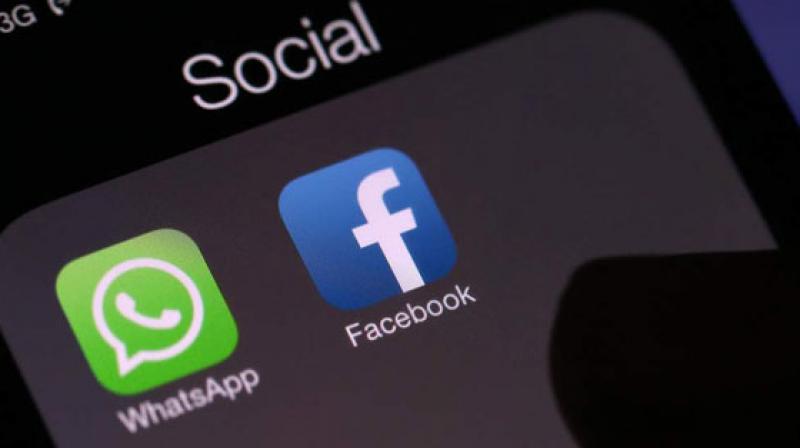Facebook on Monday announced the release of Portal and Portal+, two new video communication devices for family and friends to easily connect.
The social media giant said, with the aid of artificial intelligence (AI) technology, Portal makes video calling easier and more like hanging out, while a widescreen display let users enjoy every moment together.
With a 10-inch 1280 x 800 display, Portal from Facebook improves video calling and lets you enjoy quality time with family and friends, in hands and distraction free mode.
The Portal+ is a larger screen option of 15-inch 1920 x 1080 for more flexibility.
“Both models are designed to help you feel closer to the important people in your life and make video chats feel less like a call, and more like you’re actually in the same room,” Facebook stated in a blog post.

However, with different brands of similar technologies already in the market that can do the video-calling job of Portal and Portal+, what is the need for the new devices from Facebook?
Intelligent Design, Invisible Tech
Powered by AI, Portal’s Smart Camera and Smart Sound technology take all of the guesswork out of video calling, letting you enjoy a more convenient, hands-free experience.
Whether you’re cooking in the kitchen or chasing the kids around the living room, Smart Camera stays with the action and automatically pans and zooms to keep everyone in view.
Smart Sound minimizes background noise and enhances the voice of whoever is talking, no matter where they move. It’s like having your own cinematographer and sound crew direct your personal video calls.
Connect with Facebook and Messenger Friends
You can call Facebook friends and connections on Messenger even if they don’t have Portal. Calls can be made to and from Messenger-enabled smartphones and tablets. Portal supports group calls of up to seven people at the same time.
Voice Control + Alexa
Portal offers hands-free voice control. You can start a video call simply by saying “Hey Portal” and noting who you’d like to call. Portal also has Amazon Alexa built in, so you have access to a robust voice experience to ask for sports scores, check the weather, control smart home devices, order groceries, and more.
Built with Privacy + Security in Mind
Facebook knows that privacy and security are important when new technology comes into the home. That’s why the social media firm has designed Portal with tools that give users control to completely disable the camera and microphone with a single tap.
https://www.facebook.com/facebook/videos/320275651886768/
Portal and Portal+ also come with a camera cover, so users can easily block camera’s lens at any time and still receive incoming calls and notifications, plus use voice commands. Users can also manage Portal access by setting up a four- to 12-digit passcode to keep the screen locked. Changing the passcode requires Facebook password.
Immersive Experiences
Facebook has enabled in Portal and Portal+ shared activities for users to listen to music or watch some of favorite shows together. To bring about enhanced functionality, Facebook partnered with Spotify Premium, Pandora, and iHeartRadio, as well as Facebook Watch, Food Network and Newsy.
The tech firm is also incorporating augmented reality (AR) effects, powered by Spark AR platform, to make calls even more fun and interactive.

Story Time brings stories to life with custom sound effects and visuals. Smart Camera helps users read a fun story via a simple teleprompter, perfectly framed, while loved ones on the other side watch as users’ face and voice transform into the story’s characters.

And when a user is not on a call, Portal’s Superframe can display favorite photos and videos and important notifications like birthday reminders, so users always feel a little more connected to closest family and friends.
Portal and Portal+ are available for pre-order in the US at $199 USD and for $349 USD respectively with shipping expected to begin in November. A bundle of two Portal devices will be priced at $298 USD. The devices are expected to be available globally.
Are Portal and Portal+ worth it or just some other rave like Daptly’s Smart Mirror?
Tag: Facebook
-
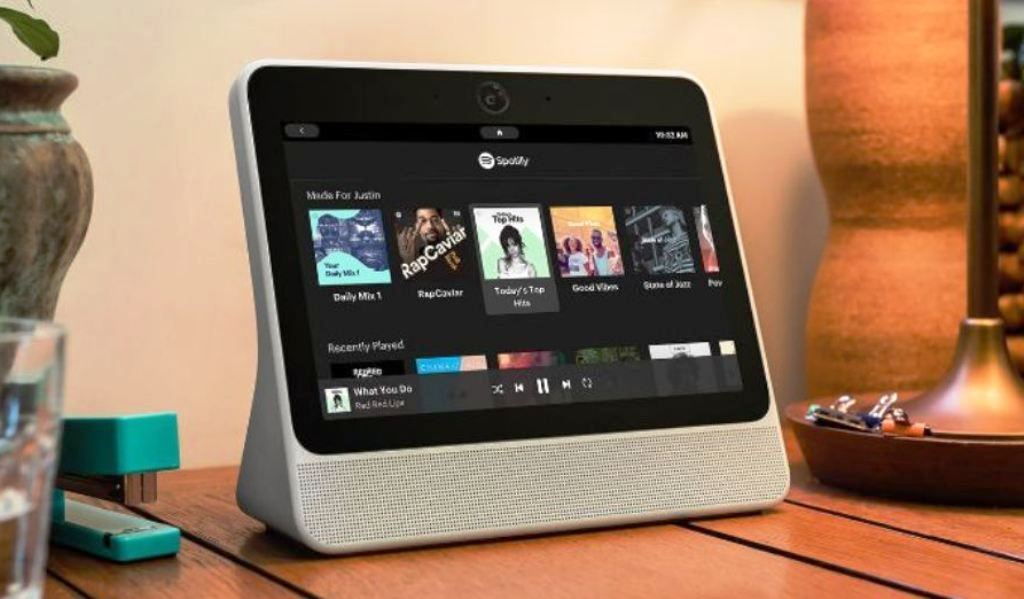
What is need of Portal, Facebook’s new video calling device?
-
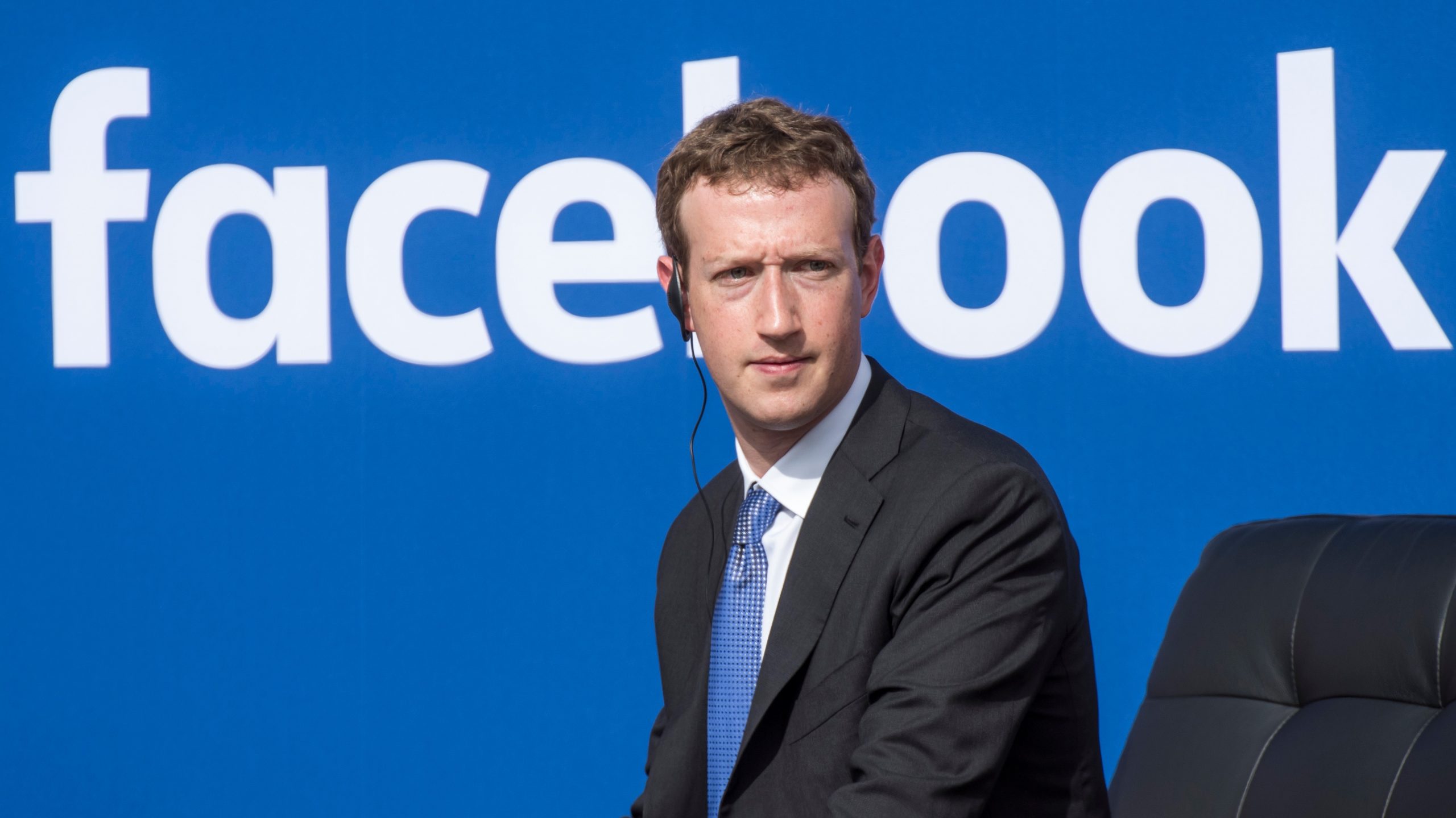
Facebook’s lead EU regulator opens probe into data breach
Facebook’s lead regulator in the European Union, the Irish Data Protection Commissioner (DPC), continued on Thursday an investigation into a massive cyberattack on the social networking site that the company disclosed last week.
Facebook said on Friday that hackers had stolen login codes that allowed them to access nearly 50 million Facebook accounts.
This is its worst-ever security breach given the unprecedented level of potential access.
“In particular, the investigation will examine Facebook’s compliance with its obligation under the General Data Protection Regulation (GDPR) to implement appropriate technical and organizational measures.
Such measures will ensure the security and safeguarding of the personal data it processes,” the DPC said in a statement.
Under the new GDPR European privacy regulations which came into effect in May, breaking privacy laws can result in fines of up to 4 per cent of global revenue or 20 million euros whichever is higher.
The fine is as opposed to a few hundred thousand euros previously.
The DPC said that Facebook informed it that their own internal investigation is continuing and that the company continued to take remedial actions to mitigate the potential risk to users.
DPC is regulates a number of U.S. multinationals with European headquarters in Dubsaid.
Facebook said on Tuesday that investigators had determined that the hackers did not access other sites that use the social networking site’s single sign-on.
Some security experts, including former Facebook executive, said the company may have painted worst-case scenario when it disclosed the attack on Friday to ensure compliance with the strict new European Union privacy rules.
GDPR imposes steep penalties if companies fail to follow rules that include a requirement that they disclose breaches within 72 hours of discovery.
That is a tight window that security experts say does not give investigators adequate time to determine the impact of the breach.
Facebook’s latest vulnerability had existed since July 2017, but the company first identified it on Tuesday of last week.
-

Google keys into Facebook’s machine learning initiative
Google has announced broadening, throughout its Cloud’s artificial intelligence (AI) platforms and services, support for PyTorch, keying into the Facebook’s open source Machine Learning (ML) framework.
TheNewsGuru (TNG) reports this is following the release of an updated version of the deep learning framework, PyTorch 1.0 Preview, by Facebook on Tuesday.
With the release of PyTorch 1.0 Preview, designed for easy and flexible experimentation, the framework now supports a fully hybrid Python and C/C++ front-end as well as fast, native distributed execution for production environments.
“Today, we’re pleased to announce that engineers on Google’s TPU team are actively collaborating with core PyTorch developers to connect PyTorch to Cloud TPUs.
“The long-term goal is to enable everyone to enjoy the simplicity and flexibility of PyTorch while benefiting from the performance, scalability, and cost-efficiency of Cloud TPUs.
“Here at Google Cloud, we aim to support the full spectrum of machine learning (ML) practitioners, ranging from students and entrepreneurs who are just getting started to the world’s top research and engineering teams.
“ML developers use many different tools, and we’ve integrated several of the most popular open source frameworks into our products and services, including TensorFlow, PyTorch, scikit-learn, and XGBoost,” said Rajen Sheth, Director of Product Management, Google Cloud.
Facebook’s Product Manager in charge of AI, Joseph Spisak, said PyTorch 1.0 accelerates the workflow involved in taking breakthrough research in AI to production deployment.
“With deeper cloud service support, developers can more easily take advantage of PyTorch’s ecosystem of compatible software, hardware, and developer tools.
“The more software and hardware that is compatible with PyTorch 1.0, the easier it will be for AI developers to quickly build, train, and deploy state-of-the-art deep learning models,” he further stated.
-
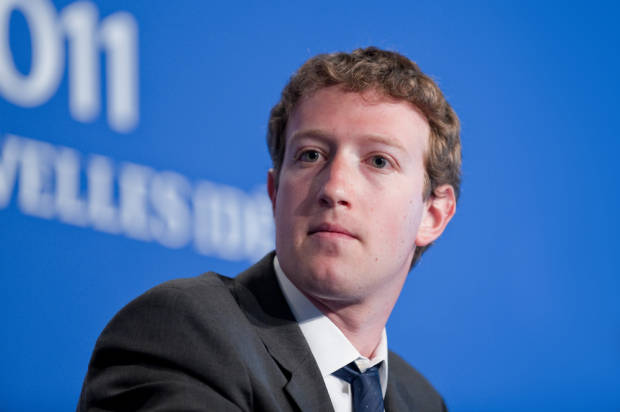
Woman sues Facebook, claims site enabled sex trafficking
A Texas woman, claiming that she was raped, beaten and sex trafficked at the age of 15 by a pimp who posed as a Facebook “friend,” has filed suit against the social network.
The woman, identified only as Jane Doe, alleged Facebook executives knew minors were being lured into the sex trade on their platform.
Doe, in court papers, filed in Harris County District Court in Houston on Monday, also named as defendants the now-shuttered classified ads website Backpage.com and its founders.
However, Facebook did not respond to a request by Reuters for comment.
Attorneys for Backpage.com and the former employees named in the lawsuit as defendants also did not return calls for comment.
According to the lawsuit, the woman was “friended” on Facebook in 2012 by a user who appeared to know several of her real-life friends.
According to the lawsuit, the man messaged her through Facebook.
The lawsuit alleged that at one point following an argument with her mother, the trafficker offered to console her, but after picking her up from her home he beat and raped her and took pictures that were posted on Backpage.com.
The lawsuit says Facebook did not do enough to verify the user’s identity, which the lawsuit said was false, and that Jane Doe was never warned that sex traffickers were operating on the social media network.
The plaintiff’s attorneys, David Harris and Louie Cook of the law firm Sico Hoelscher Harris LLP in Houston, did not reply to requests for comment.
Backpage.com was shut down by authorities earlier this year after a Justice Department investigation into allegations that the website was used primarily to sell sex.
-
Google deletes YouTube accounts with ties to Iran
Google has announced deleting 58 accounts with ties to Iran on its video sharing platform, YouTube and some other of its sites.
The recent removals targeted 39 channels on YouTube, which had more than 13,000 views in the United States, as well as 13 accounts on the social networking site Google Plus and six accounts on Blogger, its blogging platform, the company said.
TheNewsGuru (TNG) reports Kent Walker, Google’s senior vice president of global affairs, said in a blog post that each of the accounts had ties to the Islamic Republic of Iran Broadcasting, or IRIB, which is tied to Iran’s ayatollah, and that they “disguised their connection to this effort”.
Google’s announcement comes days after Facebook suspended hundreds of accounts on its site and photo-sharing app, Instagram, that originated in Iran as well as Russia, and Twitter made a similar move.
At the time, YouTube confirmed it had removed one account, called Liberty Front Press, which appeared to have connections to Iranian state media.
Google also revealed on Thursday that it took down 42 additional channels on YouTube that had ties to the Russian government’s online troll army, called the Internet Research Agency, since the company testified to Congress in November.
Facebook had acted on a tip from the cyber-security firm FireEye, which later shared its findings with Google and Twitter.
In response, Google briefed law enforcement officials as well as congressional investigators about its findings on Thursday, the company said.
The revelations of further coordinated inauthentic activity online are likely to grab the attention of lawmakers.
The Senate Intelligence Committee plans to question top executives from Facebook, Google and Twitter next month on their efforts to protect their platforms from disinformation and other digital ills.
On Thursday, the Republican chairman of the panel, Sen. Richard Burr, said he had rejected an offer by Google to send Walker to testify. “I told them I wasn’t accepting the senior vice president,” Burr said.
Earlier this week, Microsoft announced it had found evidence of a Russia-backed effort to spoof key websites, including those for conservative think tanks, in an apparent bid to hack into visitors to those pages.
In its blog post, Google said it recently took similar actions to block “attempts by state-sponsored actors in various countries to target political campaigns, journalists, activists, and academics located around the world”.
Google said it most recently notified Gmail users who received suspicious emails “from a wide range of countries” on Monday.
-

Facebook suspends hundreds of apps over privacy concerns
Following Cambridge Analytica data scandal, Facebook on Wednesday banned myPersonality app for failing to agree to request to audit after investigations revealed the app shared information with researchers as well as companies with only limited protections in place.
TheNewsGuru (TNG) reports myPersonality app that was mainly active prior to 2012 was banned from the social media platform alongside other more than 400 apps due to concerns around the developers who built them or how the information people chose to share with the app may have been used.
In a statement, Ime Archibong, VP of Product Partnerships at Facebook said the social media giants is now investigating in much greater depth into these apps.
“Today we banned myPersonality — an app that was mainly active prior to 2012 — from Facebook for failing to agree to our request to audit and because it’s clear that they shared information with researchers as well as companies with only limited protections in place.
“As a result we will notify the roughly 4 million people who chose to share their Facebook information with myPersonality that it may have been misused. Given we currently have no evidence that myPersonality accessed any friends’ information, we will not be notifying these people’s Facebook friends. Should that change, we will notify them.
“Since launching our investigation in March, we have investigated thousands of apps. And we have suspended more than 400 due to concerns around the developers who built them or how the information people chose to share with the app may have been used — which we are now investigating in much greater depth.
“It’s also why we’ve changed many of our policies — such as our expansion of App Review and our new policy that no information will be shared with apps if you haven’t used them in 90 days. We will continue to investigate apps and make the changes needed to our platform to ensure that we are doing all we can to protect people’s information,” the statement read.
-
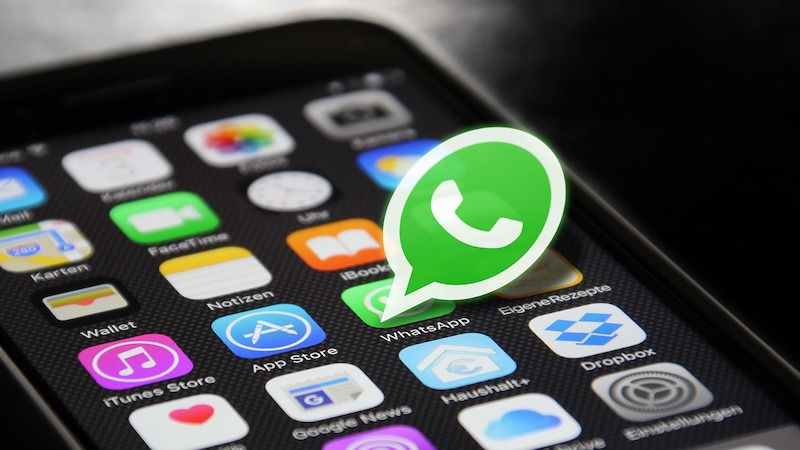
WhatsApp users spend 85 billion hours in-app + other interesting stats
According to a report released by Apptopia WhatsApp users spent a cumulative of 85 billion hours using the Facebook-owned messaging app in the past three months.
TheNewsGuru (TNG) reports that the data released by the US-based app analytics company showed that people globally spent 85 billion hours on WhatsApp that has 1.5 billion users.
Put into perspective, this is 3.5 billion days or over nine million years — 9,582,650 years to be precise. This means that every human being on the planet spent 11.425 hours on the app in the period.
Conversely, users spent 31 billion hours on its parent company Facebook.
“It’s clear that WhatsApp is the global messaging app of choice,” Apptopia’s spokesperson Adam Blacker was quoted by Forbes as saying.
“Apps having to do with communication take up most of our time spent on our mobile apps,” Blacker added.
The top 10 apps overall in terms of time spent globally are WhatsApp, WeChat, Facebook, Messenger, Pandora, YouTube, Instagram, Twitter, Google Maps and Spotify.

The data does not put into consideration all of China’s third-party Android app stores, or WeChat and other China-focused apps would very likely top the standings. Even so, WeChat is in second place overall, the report said.
Four of the top 10 apps by time spent are Facebook’s Messenger, Facebook, Instagram, and WhatsApp. Google is a leader as well, with YouTube and Google Maps in the top 10 apps by time spent overall.
Gamers were not left out in the report and users 3.31 billion hours playing Candy Crush Saga. Among the games, Clash of Clans topped the list with 3.83 billion hours time spent followed by My Talking Tom, Candy Crush Saga, Fortnite, Lords Mobile, Subway Surfers, Helix Jump, Slither.io, PUBG Mobile and Fishdom.

According to market research company eMarketer, American adults spend an average of more than three and a half hours a day on their mobile devices. In countries like Nigeria that are basically mobile-first and others that are mobile-only, with very low PC penetration, that’s likely to be even higher.
According to Apptopia, it gets its numbers by being integrated into hundreds of thousands of apps, allowing it to see performance data globally.
